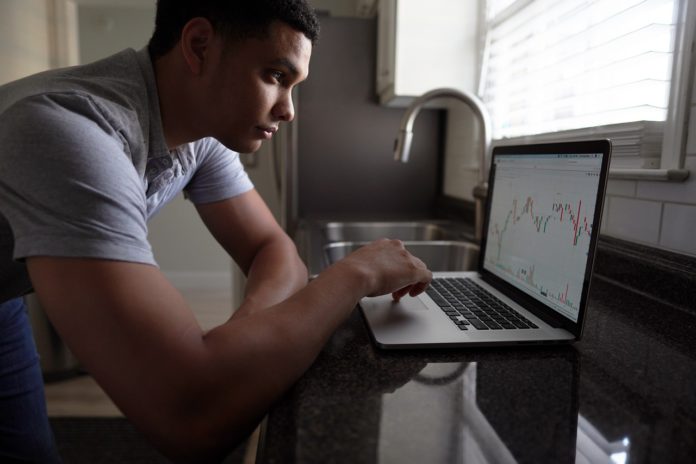Why are we still treating financial literacy like an afterthought in schools? Teenagers are surrounded by content about investing, crypto, forex, and markets. They’re curious. They’re asking questions. But when it comes to the classroom, we’re still stuck in the basics, such as how to save your money, open a bank account, and maybe a little budgeting.
It’s time to level up. Galway’s secondary schools have a real opportunity to lead the way by bringing virtual trading challenges into the mix. These simulations let students explore the world of investing without the pressure of real money. It’s engaging, practical, and builds confidence in a space that will shape their adult lives.
What Are Virtual Trading Challenges?
Virtual trading lets students experience investing without using real money. It’s a risk-free way to explore how financial markets work. They can buy and sell based on live market data, watch how prices move, and respond to changes, all within a simulated environment.
The setup is usually designed like a challenge, where students compete over a set period. That competitive element keeps things engaging, but the real value is in what they pick up along the way. They start to see how news events impact markets, how decisions carry risk, and how strategies play out over time.
These challenges are also incredibly flexible. Teachers can adjust them to suit different age groups or experience levels. Whether a student is just starting to explore economics or already has an interest in the stock market, there’s room for everyone to get involved and learn by doing.
Why Galway? Why Now?
Galway is full of smart, capable young people who are more digitally fluent than ever. Schools here already emphasise innovation in science, arts, and technology. So why not finance?
Here’s what makes Galway a perfect testing ground:
Curious students ✔️
There’s already interest in entrepreneurship and digital careers.
Supportive educators ✔️
Many schools are open to creative approaches, especially when tied to real-world outcomes.
Strong academic culture ✔️
Galway’s schools often lead in educational experimentation, from coding initiatives to green energy projects.
Adding a virtual trading challenge is a natural next step. It bridges digital skills with economic thinking, all while building a healthy relationship with risk and decision-making.
What Skills Do Students Actually Learn?
This isn’t just about who can guess the best stock pick. Virtual trading builds layered skills that matter in school, careers, and life in general.
- Financial literacy – Understanding how markets work and why they move.
- Critical thinking – Evaluating information quickly, making calculated decisions.
- Emotional control – Managing fear, greed, and uncertainty.
- Strategic planning – Setting goals, adjusting approaches, and learning from outcomes.
- Teamwork – In group challenges, collaboration becomes part of the strategy.
Compare that to a typical business studies exam, and the difference is obvious. One teaches concepts. The other teaches experience.
How to Get Started in the Classroom
Getting a virtual trading program up and running doesn’t mean rewriting the curriculum. It can start as an extracurricular activity, a project in business class, or even a short-term workshop.
Here’s a simple step-by-step idea for how schools could start:
- Set the timeframe – 4 to 6 weeks works well for a first round.
- Create teams – Small groups promote discussion and strategy.
- Choose a simulated platform – Use one that mirrors real-world market data.
- Track performance – Leaderboards and performance reports help keep students engaged.
- Wrap with reflection – Encourage students to talk about what worked and what didn’t.
To make this realistic, schools can incorporate tools like a demo trading account. This gives students access to real-time markets with zero financial risk and helps them understand how trades are placed, what margins mean, and how strategies unfold.
Common Questions Schools Might Ask
Is this too advanced for teenagers?
Not at all. The key is to start simple. You don’t need to get into derivatives or complex indicators. Focus on the basics, such as buying, selling, watching market movement, and understanding news impacts. As students build confidence, they can explore in more detail.
What about safety and regulation?
Because this is all virtual, there’s no money involved. That removes legal concerns around underage investing. It’s an educational experience, not financial advice or trading with real funds.
Do teachers need finance experience?
Helpful, but not essential. Most trading simulations come with user guides, and there’s plenty of free educational content out there. It’s less about knowing all the answers and more about guiding students to ask the right questions.
Benefits Beyond the Classroom
Virtual trading doesn’t just prepare students for business careers. It builds life skills that apply across the board.
- Confidence with money – Early exposure reduces fear and confusion about finances later on.
- Interest in global events – Students begin to understand how politics, economics, and even weather can impact financial systems.
- Career clarity – Some may discover a passion for finance or economics that they hadn’t considered before.
- Decision-making under pressure – They learn how to stay calm, assess options, and make informed choices when outcomes matter.
- Digital literacy – Navigating trading platforms helps develop comfort with tools and interfaces used in modern finance and business.
Introducing tools like an indices trading platform gives students a look into broader market strategies, like understanding how sectors and global trends affect entire markets rather than just individual stocks.
Let’s Give Students More Than Just Theory
Imagine a future where students leave secondary school not only knowing how to budget but also how to understand financial headlines, question economic policies, and explore investment opportunities with confidence. Galway could make that vision part of everyday school life!












